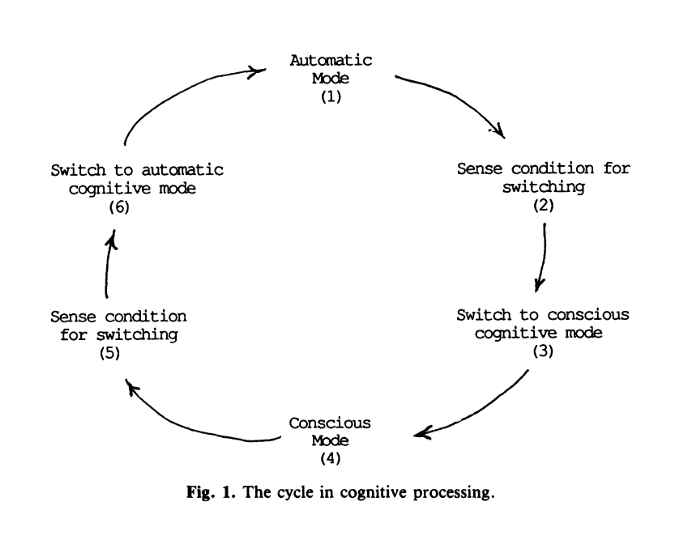Letting the mind wander is one of those skills that you might not hear much from people these days. While we like to talk about focus strategies, curbing procrastination, and hustling, letting the mind wander isn’t something that appears on those lists.
It doesn’t seem like a viable tactic in any measure. I mean, it sounds so close to day dreaming right? Who’d want to live a dream in their own head rather than getting out there to achieve your dreams?
Well, as someone who uses this technique on a regular basis and honed it in my teenage years, I have some reasons to pick up this skill. This was one of the keys to helping me learn more about myself, identify important skills, amongst other things.
Mind you, this took a fair bit of mindset development on my part, but that’s the case with any skill. You’re not going to reap all the benefits of something immediately.
But here are some reasons for starting this now.

First, You Do This Naturally
Whether you are aware of it or not, our minds do wander naturally. One Japanese study looked at the mind wander aspect and uncovered something interesting. In the study, subjects were to watch a movie and to pay attention to it for the duration. During this time, researchers examined individuals brain waves during parts of the movie.
When there was a lot of plot, subjects were focused on the movie the entire time, parts of the brain designed for focus lighting up. However, that changed during the natural lull moments. In fact, researchers noted that during those times, people were blinking more than is necessary during those moments where they weren’t focusing. This is a sign that they’re letting their mind wander.
What this means for you is that if you’re already doing this and you’re not even aware of it, start paying attention to it. Allowing your mind to wander is a conscious-controlled action, even if you’re not paying much attention to it in those instances.
Second, It Helps You Focus
Yeah, allowing your mind to wander does wonders to your focus. Even more than taking breaks. To understand why that is, you need to look more at cognitive science. In short, two researchers looked into why so many people struggled to develop a focus and found that we move between two modes of thinking. This also echoes the previous research with the film.
During the plot of films, we’re focused on what’s happening. When there isn’t much excitement, we’re moving to another mode.
This research was drawn in their report to best describe these modes.

What this figure shows is essentially the steps that we use to switch our minds from one mode to the other. Our mind does this automatically and does so by identifying which mode is the most advantageous for us at that moment. These modes are heavily influenced by markers. So the more obvious the markers are, the easier it’ll be for us to switch modes.
All that said, if you are blurring the lines between these two modes – automatic and conscious mode – your ability to focus will become harder to do.
“So what?” you may be asking.
The reason all of this is so relevant these days is so many of us are not aware that we’re multitasking.
When you go to cook something up, how often do you have Netflix running in the background or have a Youtube video running? My roommate has Youtube on his phone every time he goes and cooks something that requires him to be in the kitchen.
Or how about that urge to be checking your phone when you should be doing something else? My personal trainer is getting into the habit of setting a timer for rest periods and immediately going to check his Instagram. I’m guilty of checking my phone from time to time when I should be focused on work too.
While these are distractions, these are also stimuli for our mind. All of this is a problem as this article put it in a great quote:
If you’re only ever exposing yourself to interesting information, if you’re only ever exposing yourself to the stimuli, but not taking the time to actually think about it — to process it, to look at it from different angles, to try to run it against other paradigms or structures you have in your current mental schema — if you don’t do that work of just being alone with your own thoughts, you’re probably extracting just a small fraction of the potential value.
In other words, if you’re indulging into too much stimuli, you’re not going to be able to focus as well. Allowing your mind to wander allows you to process things better and process all of that stimuli. This all helps you to focus better.
Third, Mind Wander Opens Up Your Creativity
Keep in mind that letting your mind wander isn’t the act of you doing nothing. It is never a waste of time. After all, you do this all the time and it also helps with focus. It also does wonders for your creative thinking too.
I can stand by this from my own experiences as I’ve gotten back into meditation. Since then, I’ve used that opportunity to think about what articles to write about, how to best convey my ideas and thoughts and more. All of this allows me to inspire myself to create even during periods where my past self would’ve thrown in the towel.
I attribute a lot of my articles and ideas to meditation by this point and it’s all due to the fact I let my mind wander during those 10-minute sessions.
This aspect goes back to what’s mentioned previously. By allowing your mind to wander, you are processing the world around you and coming up with solutions. You’re able to focus more on that task and come up with truly creative ideas. This also makes sense when you consider people’s strokes of genius over the years, yours included.
Many people came up with revolutionary ideas or fixed small issues by doing other things that require little mental processing. People have had great ideas from simply washing dishes, taking a shower, or doing some other mindless task. Of course some of it can be attributed to your unconscious mind, but it wouldn’t be able to activate in the first place if you were doing something more mentally demanding.
I say this because a study proved it.

Fourth, Mind Wander Lets You Comprehend Your Emotions
Looking over my life, I know I’m not the only person who struggled to understand emotions. From looking at my past self, I can tell that I was a mental mess inside and that was clear even with my initial writing. At the start, my writing jumped from one idea to the next and there wasn’t any flow to it at all.
A jumbled mess of facts, thoughts, and opinions revolving around some kind of theme.
It was terrible.
But I know that my mind isn’t the only one that is a jumbled mess. Some people’s mindsets were no doubt, while others are still suffering from this right now.
The biggest problem I find is that people struggle to grasp emotions and process them properly. People struggle to be going through the motions and would rather hide from emotions that make them feel safe. Jessica Wildfire wrote a fantastic piece talking about that.
I can understand that from my own knowledge of negativity and how our brain works. You naturally want to be pushing forward, overcoming any negativity at all in your life. And while you can convince yourself that what you’re doing is good for you, the truth is it’s not.
One thing that struck a cord with me is this fact:
If you want to grow, you’re going to have to accept the bad stuff that comes with it.
As regrettable as it is, you have to do this.
As much as we all want to feel happy all of the time, we weren’t created to have one single emotion. Our brains have developed so much that we experience many kinds of emotions. Grief, anger, hatred, fear, frustration, anxiety, depression, doubt, skepticism, loneliness.
While you see these emotions and many others as bad things, I see them as necessary things. Being lonely is an opportunity for your mind to wander but also a way for you to think about who you want to become. Not to mention what sort of relationships you want to be having in your life.
You won’t be able to appreciate these emotions and leverage them if you constantly think of them as bad things. Even though something is bad at first, it doesn’t make it bad entirely. There are many ways to leverage emotions, but only until you understand them and process them.
Fifth, Mind Wander Can Help With Goal Setting
From loneliness, you can get a better grasp of yourself. The same can be true with allowing your mind to wander. If you’re already thinking of ways to be solving problems or improving yourself from mind wandering, it makes sense that this can translate to goal setting.
One study did make the connection to mind wandering boosting your abilities to set goals. The study found that when you were doing an undemanding task followed by setting personal goals, people found it easier to do that. On top of that, those who followed those sequences of actions were able to set higher and more concrete goals.
The reason for that is because while doing that undemanding task, the subjects were prompted to think about what they really wanted to do in life.
Another thing to note is that those who do let their mind wander also are fine with getting rewards later rather than now. This is considerable since most people are used to instant gratification these days. All in all these tactics help them to improve their own long-term goal-setting skills and achieving them.
Let Your Mind Wander
As you can see, developing the skill to mind wander can help in many aspects of your life without you realizing it. I think this is so important these days since the world is filled with many kinds of distractions. Many of us struggle to understand our emotions and most encourage us to “be happy” or offer other generic advice.
The truth of the matter is perhaps sometimes you need someone to listen to you and your problems. Or maybe you do need to have a better grasp of your emotions. Either way, this skill has helped me in so many ways and continues to be useful to me.
The only thing to note is that where your mind wanders off does matter significantly. It’s not going to help you if you drag it off to some depressing corner and never confront those emotions. Train yourself to take control of your mind wandering and you’ll find yourself enjoying these benefits and more.
To your growth!
Eric S Burdon